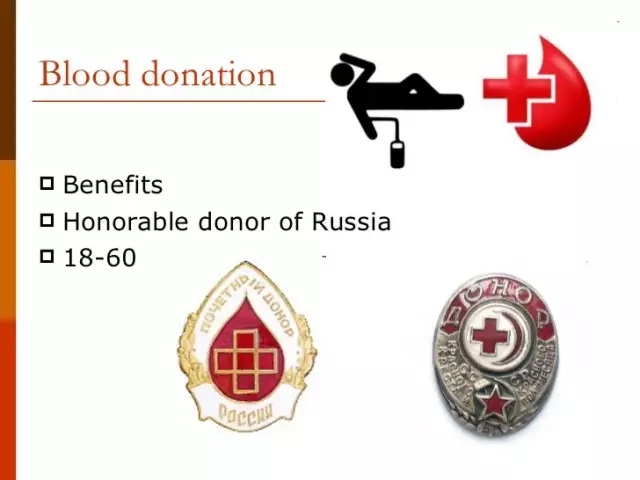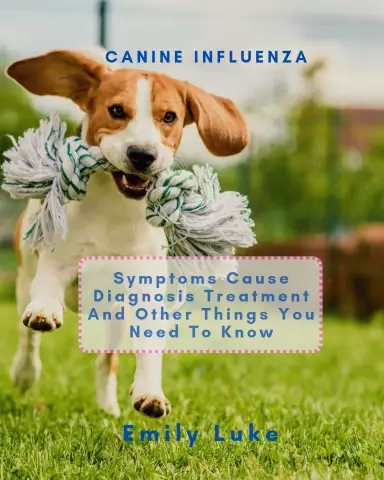- Author Rachel Wainwright wainwright@abchealthonline.com.
- Public 2023-12-15 07:39.
- Last modified 2025-11-02 20:14.
Pediatric Epilepsy: What Parents Need to Know?
Epilepsy is one of the most common neurological diseases in both children and adults. However, many myths and misconceptions have arisen around this disease. What do most people who have never experienced epilepsy know? The fact that in Russia it was called "epileptic", and the fact that during an attack it is necessary to put a wooden object in a person's mouth so that he does not suffocate and does not bite his tongue.
Collecting statistics on epilepsy in children is complicated by the fact that not every child with epileptic seizures is registered with an epileptologist. Nevertheless, according to some estimates, the number of children with epilepsy can be as high as 5%. In total, more than 50 million people are affected by this disease in the world, and 80% of them live in countries with middle and low income. In many countries it is quite difficult for people with epilepsy to live - they are subjected to social discrimination, so the problem is undoubtedly very urgent.
Learning from a doctor that a child has epilepsy is not an easy test for parents. Let's try to figure out which statements about epilepsy are true and which are false.

Source: depositphotos.com
Epilepsy always causes loss of consciousness and seizures
This is not true. Epilepsy has many forms. They can be conditionally divided into three categories:
- partial seizures;
- generalized seizures;
- unclassified seizures.
With partial seizures, the child may be conscious or impaired. Manifestations depend on in which part of the brain the affecting focus is located. Sometimes partial seizures are manifested by short-term numbness of the fingers, a feeling of creeping creeps, hallucinations.
Generalized seizures are closest in description to well-known symptoms. The option when the patient falls, rolls his eyes, he has convulsions and foam comes from the mouth, is called a tonic-clonic attack. However, in children, so-called minor seizures - absences - are no less common. They last only a few seconds, and if the child is sitting or lying at this time, he does not have time to fall. For the time being, such a problem remains unnoticed by the parents: it seems that the child is simply thinking hard about something.
Finally, some seizures - including neonatal seizures, febrile seizures, seizures in acute metabolic disorders - do not belong to either partial or generalized forms of epilepsy.
The frequency of seizures depends on the person's level of arousal
Scientists have been studying the factors that influence the occurrence of seizures for many years. There is undoubtedly a correlation in a number of cases: for example, in some children, flickering frames or flickering of a TV screen or a computer can provoke an attack. However, it is usually impossible to identify a clear relationship, as well as to predict the frequency of seizures.
If large seizures are relatively rare and after them the child, as a rule, falls asleep, then the number of absences reaches several dozen or even hundreds per day. The problem of the usefulness of the social life of people with epilepsy is largely related to the unpredictability of seizures: they can catch a person on the street, on the bus, in the pool or at work.
People with epilepsy don't live long
This is a substitution of concepts that parents need to understand. Epilepsy itself does not lead to death and does not affect life expectancy, but the risk of injury is greatly increased. Therefore, it is imperative that everyone around the child - not only parents and relatives, but also kindergarten teachers and teachers at school - know how to behave correctly during a child's attack in order to reduce the likelihood of injury.
Epilepsy inevitably leads to mental retardation
This is the second reason for the parents' fears after the fear of the possible death of the child. The idea that a baby will never be able to become a full-fledged member of society is unbearable and often associated with a sense of shame.
Meanwhile, history includes many people who in one form or another suffered from epilepsy. Peter I, Guy Julius Caesar, Napoleon Bonaparte, Fyodor Dostoevsky, Gustave Flaubert, Leonardo da Vinci and Niccolo Paganini - this is not the whole list of celebrities who suffered from epilepsy. And also, according to historians, the Apostle Paul himself suffered from epilepsy.
Nevertheless, epilepsy can indeed have a negative impact on the development of a child: with each seizure, some neurons in the cerebral cortex die. This is the strongest argument in favor of early treatment: seizures must be stopped! If the parents refuse to treat the child, irreversible consequences are possible. With adequate therapy and reducing the number of seizures to a minimum, the child will be able to attend kindergarten (school, institute) on an equal basis with healthy peers.

Source: depositphotos.com
Epilepsy is untreated
It is not true. In the vast majority of cases (70%), it is treated extremely successfully. Moreover, children have the opportunity to "outgrow" their illness. If the seizures do not resume after the anticonvulsant drugs are discontinued, the child will be removed from the epileptologist's register. However, it all depends on the form of the disease and the reasons that caused it.
You cannot waste precious time and try to cure the baby with healers, traditional healers, "grandmothers" and other adherents of alternative medicine. You need to consult a neurologist immediately, after the first attacks, in any of their manifestations. The main reliable examination is electroencephalography of the brain, which allows to record outbreaks of pathological activity.
The child is not able to understand what is happening to him: he does not remember his attacks and what happened to him at that time. But if the reaction of adults is inadequate, he may eventually withdraw into himself and consider his illness something shameful, embarrassed by his peers and avoiding communication with them. It is in the power of parents to create a comfortable and normal life for their child, without focusing on his illness, but at the same time providing treatment.
YouTube video related to the article:

Maria Kulkes Medical journalist About the author
Education: First Moscow State Medical University named after I. M. Sechenov, specialty "General Medicine".
Found a mistake in the text? Select it and press Ctrl + Enter.






